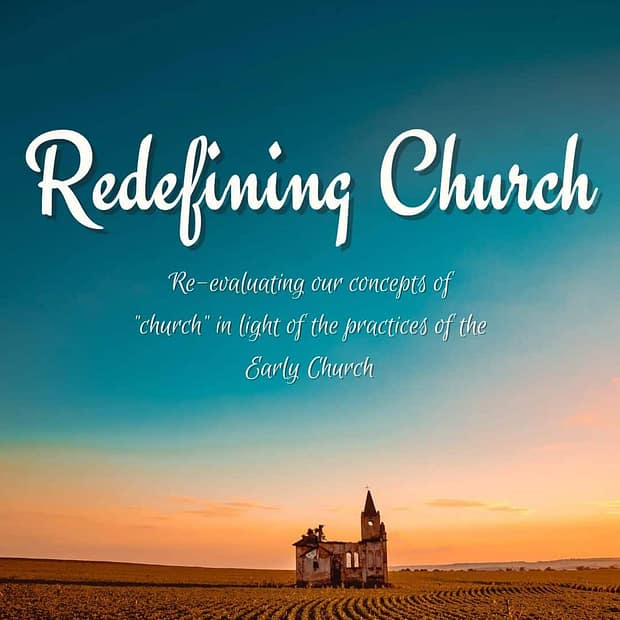The fourth concept in the model of church that is described in Acts 2 is togetherness. The unity that the early believers built the church upon is far removed from the dissent and disunity that we see in the twenty-first century church. In the aftermath of the Day of Pentecost, the early church was united by an unadulterated, Christ-centred faith. After two millennia of doctrinal debate and division, the modern-day church, although still focused on Christ, is no longer united as one, but divided into dozens of denominations. What impact does that division have, and is it possible to redefine our understanding of church to return to the unity that the early believers thrived within.
Read: Acts 2:44
And all the believers met together in one place and shared everything they had.
Unity, which refers to “the state of being united or joined as a whole”, is one of the key foundations upon which the early church was built. The earliest believers, in the wake of Pentecost, were united by their shared faith in the risen Christ. Imagine, if you will, what it was like for those who had come to faith following Peter’s first sermon. What was it that drew them together in unity? Likely, it was partly due to the fact that at this point they were a minority. They gathered together because they had their faith in common.
Common ground is one of the foundational principles of unity. But extending that principle to the modern church, we encounter a problem. As Christians, we should gather together as one body, one church, united, as the early believers were, by our faith in Jesus Christ as our Lord and Saviour. Instead, although gatherings of Christians take place on Sunday mornings all across the world, we’re not united as one body, as one church. Instead, we have one faith, but dozens of denominations, and instead of unity, there is almost a sense of competition, with different denominations disagreeing over doctrine and each claiming to be the “true” church.
Christians in the twenty-first century can engage in “church shopping”, whereby if one version of church doesn’t fit with your lifestyle, or asks you to agree with doctrine that you don’t like, you can “shop around” for another church that expects less of you, or has a better kids’ ministry, or has a worship style that you prefer. Somewhere, in the midst of two thousand years of doctrinal debating, church has become less about “togetherness” and more about consumerism. Modern preachers can be afraid of preaching the gospel in its entirety because they’re afraid of upsetting the congregation, who have plenty of other churches to choose from. We’ve gone from the togetherness of “church” to the disparity of “churches”.
Jesus once said that a divided house cannot stand. There was no division in the early church, but the modern church has never been more divided than it is now. The early church didn’t even have a written Bible, much less doctrines to debate over, and their faith was clear and uncomplicated. I’m not suggesting that we don’t need doctrine, but there is a sense that too much emphasis on doctrine has taken away some of the transformative power of the gospel message.
What would it look like for the twenty-first century churches to embrace the unity that the early church had? Is it even possible for us to get past the doctrinal division that has blighted the modern church? In what ways could a united church reach the world that a divided church can’t? None of these are easy questions to answer, but they’re ones that we need to give careful consideration to. The early church grew rapidly – could that be in any way related to their togetherness?

A very interesting read – thank you. It’s sad to hear of church splits because of certain ‘disagreements’ or different ‘translations’ in the bible. I believe that we must remember that even though we have those divisions – we are all brothers and sisters in Christ and know the truth and know our relationship in Christ. We should all still ‘Love one another – as he loves us.’ Thank you for sharing! ❤️